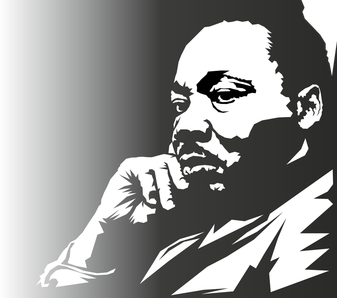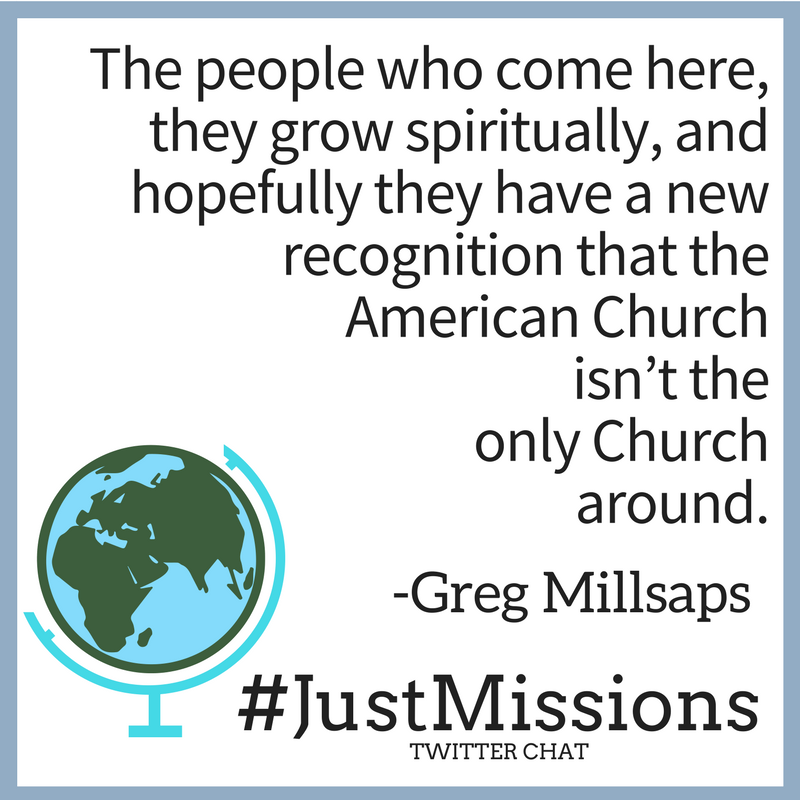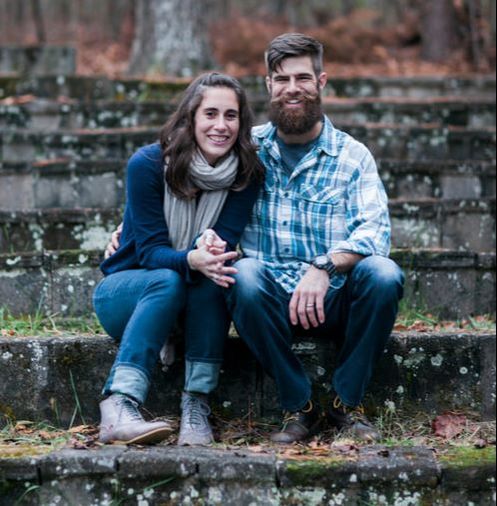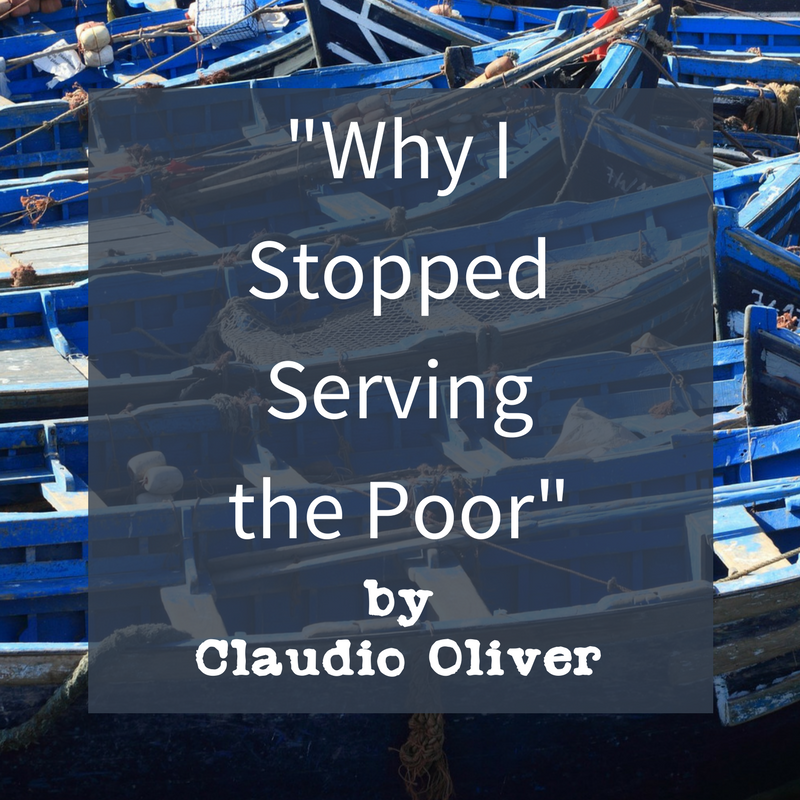|
“Why do we label theology Black theology or Latino theology and when it’s White theology it doesn’t get a qualifier?” Is one of the many questions Greg likes to ask the 6-12 month short-termers that come to El Carmen, Nuevo Leon, Mexico. Greg and wife of 26 years, Jan, have lived in Mexico for 11 years. They’ve been on the “mission field” for over 14 years with their first three years in Nicaragua.
“In the long run of being here, we’ve become that bridge between the people who are here short-term—including Búho staff and year-long teachers.” El Búho is a nonprofit coffee shop ministry that started in 2010 and works to bridge the international rock climbing community with the local Mexican community. Greg serves as the executive director. “We have a lot of short-term people here. It’s our joy and pleasure to see them rounded out and experience Mexico, and we hope our engagements with them are positively challenging.” Greg said that he hopes to make the short-termers consider ideas of imposing dominant culture. “We want these cultures to cross pollinate with each other. We want them to have a true cross-cultural experience, of us putting them in a position to let them interact with the culture. It’s like we are curators of the environment: safety, logistics, housing, but then once the environment is in place, Mexico does it’s thing and it’s beautiful because we just get to sit back and watch it,” he said. “This is why we are still here, to see transformed lives. The people who come here, they grow spiritually, and hopefully they have a new recognition that the American Church isn’t the only Church around. When they experience the panderistas—tambourine dancers—in our Mexican church and ask, ‘Why are they here?’ Then we can talk to them about the cultural differences.” The Millsaps plan to be in Mexico indefinitely. “At some point we’ll have lived here longer in marriage than we ever have lived. This is our home, we are going to live out our lives here. It makes me question is it really missions at that point?” Nonetheless, Greg recognizes that he’ll always be a foreigner. “We certainly believe in the value of mixing cultures, crossing cultures, but at the end of the day we are in a Mexican living room as guests, even on the long, long-term, we are always going to be foreigners. I could be 80 years old living in El Carmen, and I’m still that American guy.” “What we are trying to do is build a community, and not trying to control it or Jesus-i-fy it, just letting God be God and letting everyone know what we are about. We are willing to work and live in shalom with people who hold different beliefs. God is big and able to open things. There are some people who have come to us and say, ‘I’m drowning in addiction and I need help.’ The Búho tribe—not the staff but the regular customers who hang around—often come around every day. There’s a spiritual side of ‘it takes a village’ of healthy relationships all around. We are conviviendo—spending unlimited time with—we are a part of each other’s lives. We are watching some unhealthy thoughts/tendencies and addictions wither and die. That’s why I’m still here; why I firmly believe in what we do, and the more people that come in and experience it I’m happy.” There are fewer short-term mission teams that come to where Greg is now than when they first started. “The STM teams, they are only here for a week, so everything is super-sized, and they are not really in true community. By the time they get an idea of everything, then they leave.” Greg also helps educate and train Mexican pastors as a professor of New Testament Studies at Insituto Ministerial El Calvario. “But my most important role is grandfather,” he said gushing. Greg and Jan have three sons, and the eldest and his wife became parents last year. Greg has struggled a lot lately with the American Church. He finds himself in the middle where he’s too conservative to his liberal Christian friends and too liberal for his conservative Christian friends. “I’ve been deeply and profoundly disappointed in the Conservative American Church; I feel abandoned by her especially as she has become embodied by Franklin Graham and Jerry Fallwell Jr. Graham and Fallwell Jr. are heroes to evangelical friends of mine. Whatever faith they have and believe … the god they believe in is not the same one I believe in. I am an atheist to that god. The Jesus I find in scripture, I am 100% with. That’s who I worship and serve and follow,” Greg said and suggested he aligns more with Christians like Wendell Berry and Brian Zahnd. “There are multiple christianities at play here,” he said citing Graham’s alignment with MAGA and Joel Osteen’s prosperity gospel. “It feels so isolating, like we are spiritual misfits and orphans, but we have each other. We’re still in the faith, we aren’t going anywhere. I’m not ready to relinquish the rights of Christianity to those who blatantly misrepresent the Gospel,” he said. Greg has been participating in #JustMissions regularly, and he has a big question for the group. While he enjoys the conversations we have, he wonders who is listening and how things are changing. He wants to be weary of the echo-chamber effect that these conversations can have.
0 Comments
 We need to run toward injustice not away from it. “I am in Birmingham because injustice is here.” In our triumphalistic-Christianity, we shun suffering. We tell each other the testimony is on the other side of the suffering rather than in the midst of it. We build up walls of comfort, and teach our children to pursue “the promise land” at the cost of understanding a theology that reminds us God suffers and he is often most visibly seen among the suffering. We need to recognize there is negative peace and positive peace. “The Negro’s great stumbling block in the stride toward freedom is not the White Citizens Councillor or the Ku Klux Klanner but the white moderate who is more devoted to order than to justice; who prefers a negative peace which is the absence of tension to a positive peace which is the presence of justice… .” Do we not love order so much that we act as though our places of worship and our services themselves—at the beckoning call of the idol of excellency—look like opera houses? If someone ruins our plan, the schedule, the air of excellency whether by wailing too loudly, dancing too crazily, or speaking too long over their allotted time, we act as though they are a traitor in our midst apologizing profusely to the crowd we entertain. We plan our lives to look the same: our houses like magazines, our children’s resumes are built from infancy. We seek out order more than we seek out justice—because we know justice is messy and we aren’t willing to give up order for it. We invite messes in for a few days: family for the holidays, teenagers on a short-term mission, and then we label such charitable deeds as justice so that we uphold the pretense. Tension is our enemy, and fear of man our idol. Justice requires too much of us, so we maintain the status quo. We need to embrace biblical compassion that requires empathy over sympathy and action over complacency. “I guess I should have realized that few members of a race that has oppressed another race can understand or appreciate the deep groans and passionate yearning of those that have been oppressed, and still fewer have the vision to see that injustice must be rooted out by strong, persistent, and determined action.” Strong, persistent, and determined action requires sacrifice. Empathy requires us to build relationships with those who have been oppressed, and imagine walking in their shoes. Will this make us understand 100%? Absolutely not. But it will move us from sympathy—where we look down on another’s suffering and feel pity for them—to empathy—where we stand alongside another who is suffering, listen to his woes and concerns, and join the fight on his terms. I am amazed at how little people can imagine life in another’s shoes today. We need to embrace a robust gospel theology that recognizes the whole of a human being. “In the midst of blatant injustices inflicted upon the Negro, I have watched white churches stand on the sidelines and merely mouth pious irrelevancies and sanctimonious trivialities. In the midst of a mighty struggle to rid our nation of racial and economic injustice, I have heard so many ministers say, ‘Those are social issues which the gospel has nothing to do with,’ and I have watched so many churches commit themselves to a completely otherworldly religion which made a strange distinction between bodies and souls, the sacred and the secular.” The concept of salvation in White Christianity is steeped in this dichotomy of bodies and souls, sacred and secular. We worry about souls, not about bodies, which is itself an act of dehumanization. The Gospel teaches us that man is body, soul, mind, and spirit. Anytime we extract one of those and equate it to the whole of a human, we reduce the Imago Dei and treat salvation as a transaction. Salvation is not the end. It is the beginning. It is not transactional, it is transformational. It is not a past event but an ongoing work of becoming whole. Therefore, the social ills that prevail in one’s society affect the human being as a whole. If we do not have a gospel that speaks this truth and includes the social issues of the day, we do not have the Gospel. We need to recognize that we don’t see everything. “You warmly commended the Birmingham police force for keeping ‘order’ and ‘preventing violence’. I don’t believe you would have so warmly commended the police force if you had seen its angry violent dogs literally biting six unarmed, nonviolent Negroes. I don’t believe you would so quickly commend the policemen if you would observe their ugly and inhuman treatment of Negroes here in the city jail; if you would watch them push and curse old Negro women and young Negro girls; if you would see them slap and kick old Negro men and young boys, if you would observe them, as they did on two occasions, refusing to give us food because we wanted to sing our grace together. …It is true that they have been rather disciplined in their public handling of the demonstrators. In this sense they have been publicly ‘nonviolent’. But for what purpose? To preserve the evil system of segregation. Over the last few years I have consistently preached that nonviolence demands that the means we use must be as pure as the ends we seek. So I have tried to make it clear that it is wrong to use immoral means to attain moral ends. But now I must affirm that it is just as wrong, or even more, to use moral means to preserve immoral ends.” Simply put, the whole Truth is something no man sees alone. We need each other to see the truth of our society, the truth of our world, the truth of who God is and what He is currently speaking into this world. If our spiritual community is made up only of people who look like us body, soul, mind, and spirit, we only see a fraction of the truth. In order to be made whole (salvation) we must fully see what is broken. We need diversity in the church not for diversity sake, but for the sake of seeking the entire truth that will see us all free. Traditional Gender Roles
When I married Andrew 9 years ago, we tried to squeeze ourselves into traditional gender roles: husband at the top of the chain, then the wife. The hierarchy of gender was the ‘biblical’ pattern for marriage we both had been taught, and I secretly hated it. In college, I had some Christian female friends who longed for marriage and wanted to be stay-at-home moms. Not me. I wanted to be married, sure, but I also longed for adventure, a writing career, and purpose beyond the home. I refused to believe that life started when I got married. I was labeled a feminist. Sometimes that label irked me, sometimes it empowered me. After publicly declaring our vows, Andrew and I tried to settle into American life. The newspaper I worked for had just gone bankrupt. Unemployed and job hunting, I had become a stay-at-home wife. In many ways, I felt like the wild within me had to be locked up. I questioned whether those desires were from God. Did God want me to stay home? Cooking and cleaning were part of what I understood as my role. Andrew worked a job that required him to travel four hours a day. Did God want Andrew to feel pressured to take a bad job so he could provide? He was clearly the breadwinner. He was first. My role was one of support. Searching for a job wasn’t just an economic search. I hoped it would bring back a bit of my ‘higher calling’ beyond the home. This only magnified the ridiculousness of my resistance to be ‘domesticated.’ No one was calling me a feminist now. It wasn’t until I began doing ministry with my husband that I really started to see another option beyond traditional gender roles. Co-Partnering in Ministry We were seven months married when we moved to Mexico as missionaries. I knew Spanish. Andrew didn’t. So in many ways, the power balance between us swapped. I had to be his mouth and his ears, and as he often says, his crutch, until at least seven months in when he began having conversations on his own. When we began our coffee shop ministry, El Búho (The Owl), we were both ‘domesticated’ as I had previously seen it. We both swept and mopped. We both cleaned the toilet. What seemed like gender roles turned into personality strengths. He is good at carpentry and logistics. So he built stuff that made our upstairs residential apartment transform into a welcoming coffee shop. His extroverted self is good at having conversations with random strangers, so he would talk and talk and talk to the international rock climbers. I am an introvert and a writer. So I kept up with our blog and though I had many-a-conversation, I had to recharge afterward. I am an artist, so I painted a lot of owls on a lot of scrap pieces of wood. I love to bake, so I baked pay de queso, roles de canela, and pastel. But I didn’t bake cookies because for some reason my cookies never came out right. So Andrew began baking cookies, and he was good at it. Ministry seemed to be more about our personalities than our gender, more about our talents than our genetic makeup. The vertical hierarchy of gender started looking more horizontal. Callings Rather than Boxes When we began volunteering as youth pastors, I preached more often because I spoke better Spanish and because I was a better public speaker. But when we took our youth rock climbing, Andrew—a rock climber—took the lead. He was great at teaching the youth how to look for holds and how to rappel. I was the rock-climber-by-association, the one who cried on the top of several climbs Andrew took me on. But I was great at encouraging them as I belayed. “You can do it — si se puede!” In the midst of a heavily saturated machismo-mentality culture, Andrew and I didn’t so much learn distinctions for gender roles as we learned personality-infused ministering. We learned to come alive by ministering to others from the depths of our souls rather than from the boxes we were taught to fit into. We attended a counter-cultural church where women preached to the whole congregation. Pastor David and Pastora Monica were rebels in their own culture, paving a path we didn’t have to pioneer. Shifting Our Perspective of Ministry Serving as a married couple had a way of refining us. There was more opportunity for conflict, but also more opportunity for the gospel to be worked out between us. "If we agreed or disagreed about what was going on, we kept pushing each other forward. We weren’t afraid to argue with each other. To solve a disagreement, you have to work it out, you have to figure out what you need to change, or die to, and then you move forward accordingly. Fortunately, I married an Italian woman so I got plenty of that, and so did she," Andrew said. Looking back on it now, I think because our pastor and his wife were already serving as co-partners at our local church—and they served as a covering over our coffee shop—we may have helped affirm their already ongoing witness that while genders are distinct they are not hierarchied in the Kingdom of God. And as the gospel was being worked out between the two of us, we saw it bear fruit in the same way in the ministry we were leading together. When our fellow church congregants referred to the coffee shop, they always used both our names with it. The onda—vibe/spirit—of the shop was always communal. Our partnership as a married couple set a deeper tone for our work together in the broader community. Whether the customers were male or female, dirtbag climbers who hadn’t bathed for days, Mexican youth spiffed up and out on their first date, or a mixed group of locals and internationals sitting around playing another long game of Settlers of Catan, the inclusive vibe was always there. We began to see ministry more simply. Ministry is building community. Ministry is tearing down communal hierarchies. Ministry is bridging cultures. Ministry is tearing down cultural hierarchies. Any label that put someone else on a pedestal seemed to go against the gospel that says all are sinners, all are in need, all depend on One King on the throne. Jesus, the ultimate servant leader, offered humility to those in power and power to the lowly. He made flat hills and valleys of power. Through lows of selfish frustration and highs of authentic unity, together Andrew and I witnessed the upside-down un-hierarchical Kingdom emerge inside out. |
Gena's
|



 RSS Feed
RSS Feed

